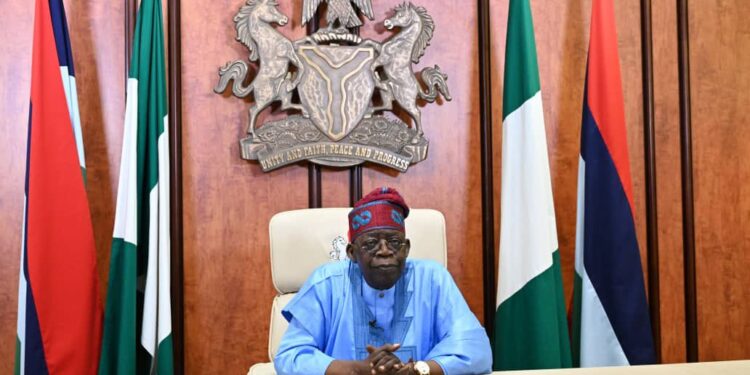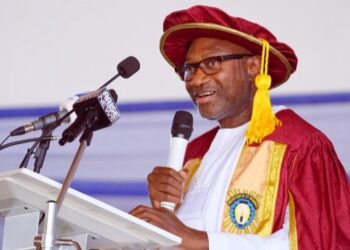President Bola Tinubu has declared that his administration has made undeniable progress in curbing the inflation rate and stabilizing the economy in the last two years due to a series of reforms.
In a statement released to mark his second anniversary in office on Thursday, May 29, 2025, President Tinubu said the economic and structural challenges inherited at the start of his administration required urgent and visionary intervention.
“The economic and general situation of the country I inherited required that we redirect the country’s affairs with a bold and new vision. I immediately implemented two necessary policies to stop our country from further drifting into the precipice,” Tinubu stated.
Acknowledging current cost-of-living challenges, the President emphasized that significant progress has nonetheless been made.
“We have made undeniable progress. Inflation has begun to ease, with rice prices and other staples declining. The oil and gas sector is recovering; rig counts are up by over 400% in 2025 compared to 2021, and over $8 billion in new investments have been committed. We have stabilised our economy and are now better positioned for growth and prepared to withstand global shocks,” he said.
We remain on track to meet fiscal targets in 2025, says Tinubu
Speaking of achievements in key fiscal and monetary reforms, Tinubu said, “In 2025, we remain on track with our fiscal targets. Gross proceeds per barrel from crude oil are broadly aligned with our forecasts as we intensify our efforts to ramp up production. Our fiscal deficit has narrowed sharply from 5.4% of GDP in 2023 to 3.0% in 2024. We achieved this through improved revenue generation and greater transparency in government finances. In the first quarter of this year, we recorded over N6 trillion in revenue.”
He noted the discontinuation of Ways and Means financing — a move aimed at curbing inflation — and added that the Nigerian National Petroleum Company (NNPC), now free from the burden of fuel subsidies, has become a net contributor to the Federation Account. He also emphasized progress towards fuel supply security through local refining.
On the nation’s debt situation, Tinubu pointed to improvements driven by sound fiscal management:
“Our debt position is improving. While foreign exchange revaluation pushed our debt-to-GDP ratio to around 53%, our debt service-to-revenue ratio dropped from nearly 100% in 2022 to under 40% by 2024. We paid off our IMF obligations and grew our net external reserves by almost 500% from $4 billion in 2023 to over $23 billion by the end of 2024.”
What you should know
According to the DMO, total public debt as of June 30, 2023, after President Tinubu took office, stood at N87.38 trillion.
Nigeria recently announced the full repayment of the $3.4 billion emergency loan obtained in 2020 from the International Monetary Fund (IMF).
As of December 2024, total foreign debt stood at $44.9 billion, with the top five creditors being:
- Eurobond holders – $17.32 billion
- World Bank (IDA) – $16.56 billion
- Exim Bank of China – $5.06 billion
- African Development Bank (AfDB) – $2.10 billion
- IBRD (World Bank) – $1.24 billion
In December 2024, President Tinubu also declared his commitment to reducing Nigeria’s inflation rate from 34.6% to 15% by the end of 2025.
According to the National Bureau of Statistics (NBS), Nigeria’s inflation rate eased to 23.71% in April 2025, down from 24.23% recorded in March.

















